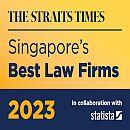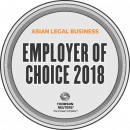E-briefing: Employment Law- Employee or Independent Contractor?
This issue was brought to the forefront in a recent case, Public Prosecutor v Jurong Country Club [2019] SGHC 150.
Jurong Country Club (“JCC”) was charged under the Central Provident Fund Act, Chapter 36 (“CPFA”) for failing to pay contributions to the Central Provident Fund (“CPF”) in respect of one employee, Mohamed Yusoff Bin Hashim (“Yusoff”).
Yusoff started as an employee of JCC in 1991. His contracts were negotiated on an annual or biennial basis and JCC contributed to his CPF.
In November 1998, Yusoff was converted to an independent contractor. He stopped receiving employee benefits such as paid annual leave and JCC stopped contributing to his CPF.
In 2016, when Yusoff found out that JCC would be closing down, he asked CPF Board whether he was entitled to employer’s CPF contributions. CPF Board decided he was so entitled, and brought the case against JCC.
The District Judge concluded that Yusoff was an employee of JCC and JCC should have contributed to the CPF. However, this was overturned on appeal.
In reaching this decision the DJ adopted the traditional approach as per the High Court in Kureoka Enterprise Pte Ltd v Central Provident Fund Board [1992] SGHC 113 (“Kureoka”); that the main focus should be the degree or extent of control exercised and the manner of remuneration. Although the DJ did consider other factors, the greatest weight was placed on the control exercised by JCC over Yusof.
High Court Decision
The High Court found that Yusoff was not an employee of JCC. In doing so they rejected a structured approach focusing on control and instead ruled that that the applicable test is flexible and fact-sensitive that is adaptable to different industries and working conditions. For example, the factor of control is of less significance in cases such as this where the alleged employee has been retained on account of his special skills or expertise. The court ruled that is unhelpful to set out general rules as to which factors should carry greater weight. This must be a determination made by the relevant court, having regard to all relevant facts and circumstances before it.
In particular when considering whether a particular person is an employee, a court should have regard to the parties’ intentions, either expressly stated or evinced through the terms of the engagement. This is particularly so where there is no evidence of a lack of good faith and no indication that the parties have tried to conceal the true nature of their relationship.
In the instant case the High Court relied on the following indicia in determining that Yusuf was not an employee:
- Yusoff was not part of JCC’s employee head count which was used for budgeting purposes and was not invited to staff functions such as JCC’s “Dinner and Dance”.
- Yusoff was not subject to employee performance appraisal and was not eligible for annual increments.
- Yusoff was only given biometric access to the gym, unlike employees who could access all areas of JCC’s office.
- Yusoff was given a different identification number as compared to JCC’s employees.
- Yusoff was not given medical benefits, hospitalisation leave, or medical leave once he was converted to an independent contractor.
- Yusoff was permitted to conduct public programmes in the JCC gym after his stipulated working hours in the contract.
- Yusoff entered into the contracts each time knowing that JCC would not make CPF contributions and that he would have to do so as a self-employed person.
This decision reinforces the trend in the courts moving way from the control test in determining whether an individual is an employee or not (see also National University Hospital (Singapore) Pte Ltd v Cicada Cube Pte Ltd [2017] SGHC 53; and in the context of tort claims and issues of vicarious liability (see Ng Huat Seng v Munib Mohammad Madni [2017] SGCA 58).
This trend is perhaps inevitable given the increasing diversity in the forms of employment. Companies should now expect that their relationship with their workers will be examined much more thoroughly to determine its nature in substance rather than form. The genuine intention of parties as expressed in the employment contract will become increasingly important.
For further information contact: |
|||
|
Suressh S. Partner, Eversheds Harry Elias suressh@eversheds-harryelias.com +65 6361 9883 Jaclyn Leong Senior Associate, Eversheds Harry Elias jaclynleong@eversheds-harryelias.com +65 6361 9806 |
For more information, please contact our Business Development Manager, Ricky Soetikno at rickysoetikno@eversheds-harryelias.com













